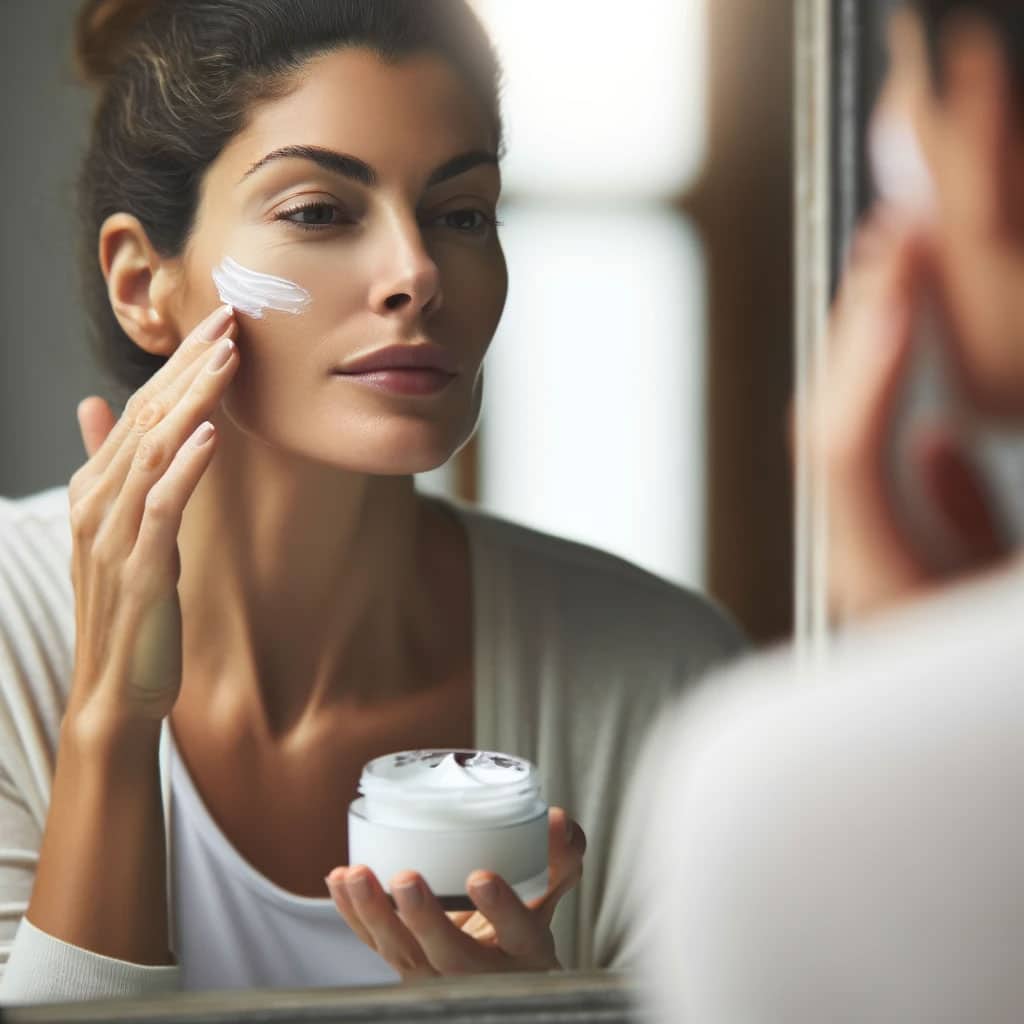Acne is a common skin condition that affects many people at some point in their lives. However, for women who are pregnant, acne can be a sign of hormonal changes that occur during pregnancy.
Hormonal fluctuations during pregnancy can cause acne breakouts, which can be frustrating and uncomfortable for expectant mothers.
Understanding Acne in Pregnancy
Acne is a common skin condition that affects people of all ages and genders. During pregnancy, some women may experience acne breakouts, which can be caused by changes in hormone levels.
Hormones play a crucial role in the development of acne, and during pregnancy, hormone levels can fluctuate significantly.
Progesterone, a hormone that is produced in higher amounts during pregnancy, can cause the skin’s oil glands to produce more sebum, which can clog pores and lead to breakouts.
Estrogen, another hormone that increases during pregnancy, can also affect the skin. It can cause the skin to become thicker, which can lead to clogged pores and acne.
Pregnancy acne can range from mild to severe, and it can appear on the face, neck, chest, back, and shoulders. Some women may notice that their existing acne gets worse during pregnancy, while others may experience acne for the first time.
It is important to note that severe acne during pregnancy may be a sign of a more serious condition, such as polycystic ovary syndrome (PCOS). If a woman experiences severe acne during pregnancy, she should consult her healthcare provider.
To treat pregnancy acne, it is essential to practice good skincare habits. Washing problem areas with a gentle cleanser can help remove excess oil and bacteria from the skin. Avoiding harsh soaps and scrubs can also prevent further irritation.
In some cases, a healthcare provider may recommend topical treatments or antibiotics to treat pregnancy acne. However, it is important to discuss any medications with a healthcare provider before use, as some medications can be harmful to the developing fetus.
Symptoms and Signs of Early Pregnancy

When a woman becomes pregnant, her body goes through many changes, some of which can be easily noticeable. These changes can occur as early as the first few weeks of pregnancy, and some women may experience more symptoms than others. Here are some common symptoms and signs of early pregnancy:
- Missed Period: One of the most common signs of pregnancy is a missed period. If a woman has a regular menstrual cycle and misses her period, it could be a sign that she is pregnant.
- Implantation Bleeding: Some women may experience light spotting or bleeding when the fertilized egg implants itself into the uterine lining. This is known as implantation bleeding and can occur a few days before a woman’s expected period.
- Fatigue: Feeling tired and exhausted is a common symptom of early pregnancy. Hormonal changes in the body can cause fatigue, and the body is also working hard to support the growing fetus.
- Nausea and Vomiting: Morning sickness, which can occur at any time of the day, is another common symptom of early pregnancy. Nausea and vomiting can be caused by the increase in hormones in the body.
- Bloating and Cramping: Some women may experience bloating and cramping in the early weeks of pregnancy. This can be caused by the uterus stretching to accommodate the growing fetus.
- Mood Swings: Hormonal changes in the body can also cause mood swings, irritability, and other emotional changes.
- Dizziness and Headaches: Some women may experience dizziness and headaches in the early weeks of pregnancy. This can be caused by changes in blood pressure and hormone levels.
- Spotting: Light spotting can occur in early pregnancy and is usually nothing to worry about. However, if the bleeding is heavy or accompanied by cramping, a woman should contact her healthcare provider.
- Cravings and Aversions: Some women may experience cravings for certain foods or aversions for others in the early weeks of pregnancy. This can be caused by hormonal changes in the body.
- Weight Gain and Urination: Some women may experience weight gain and frequent urination in the early weeks of pregnancy. This can be caused by hormonal changes and the body preparing for the growing fetus.
Acne Treatments During Pregnancy

Acne during pregnancy can be a frustrating symptom, but it is important to be cautious when choosing acne treatments. Some acne medications have been linked to birth defects and should be avoided during pregnancy. However, there are still options for treating acne while pregnant.
Topical treatments, such as benzoyl peroxide and salicylic acid, are generally considered safe for use during pregnancy. However, it is important to use them in moderation and only as directed by a healthcare provider.
Isotretinoin, a powerful acne medication, should never be used during pregnancy as it can cause severe birth defects.
Retinoids, including tretinoin and topical retinoids like tazarotene, should also be avoided during pregnancy. These medications are derived from vitamin A and can cause birth defects. It is recommended to wait until after pregnancy to use these medications.
Antibiotics, such as tetracyclines, erythromycin, doxycycline, and minocycline, can be used to treat acne during pregnancy, but only under the guidance of a healthcare provider. These medications can affect fetal bone growth and should be used with caution.
Azelaic acid and glycolic acid are other topical treatments that can be used to treat acne during pregnancy. These treatments are generally considered safe, but it is important to discuss their use with a healthcare provider.
If over-the-counter treatments are not effective, a dermatologist can provide additional options for treating pregnancy acne. They may recommend topical treatments or prescribe antibiotics that are safe for use during pregnancy.
Skin Care and Lifestyle Factors
Maintaining a healthy skincare routine during pregnancy is essential for preventing and treating acne. Hormonal changes during pregnancy can cause an increase in oil production, leading to clogged pores and breakouts. Here are some skincare and lifestyle factors to consider:
- Cleanse regularly: Use a gentle cleanser to wash your face and body twice a day to remove excess oil and dirt. Avoid over-cleansing, which can strip the skin of its natural oils and cause dryness.
- Moisturize: Use a moisturizer that is oil-free and non-comedogenic to keep the skin hydrated without clogging pores. Apply it after cleansing and as needed throughout the day.
- Avoid touching your face: Touching your face can transfer bacteria and oil from your hands to your skin, leading to breakouts.
- Diet: Eating a balanced diet with plenty of fruits, vegetables, and whole grains can help keep skin healthy. Avoiding sugary and processed foods may also help reduce acne.
- Exercise: Regular exercise can help reduce stress, which can contribute to acne. It can also improve circulation and promote healthy skin.
- Manage stress: Stress can trigger hormonal changes that can lead to breakouts. Practice relaxation techniques such as yoga, meditation, or deep breathing to help manage stress.
- Use lukewarm water: Hot water can strip the skin of its natural oils, leading to dryness and irritation. Use lukewarm water to wash your face and body instead.
- Avoid certain products: Some skincare products and makeup can clog pores and worsen acne. Look for products that are labeled non-comedogenic or oil-free.
Consulting a Healthcare Professional
If someone suspects they may be pregnant and are experiencing acne breakouts, it is important to consult with a healthcare professional. They can assess the individual’s specific situation and recommend safe and effective treatment options.
A doctor may suggest a pregnancy test to confirm whether or not the individual is pregnant. If the test is positive, the doctor may recommend further testing, such as an ultrasound, to monitor the health of the pregnancy.
It is important to note that some pregnancy symptoms, such as vomiting and spotting, can also be mistaken for symptoms of acne. Therefore, it is crucial to discuss all symptoms with a healthcare professional to ensure an accurate diagnosis.
Home pregnancy tests are widely available and can provide quick results, but it is important to follow the instructions carefully and consult with a healthcare professional if there are any concerns.
While some acne treatments may be safe during pregnancy, others may pose a risk to the developing fetus. Retin-A and Accutane, for example, are not recommended during pregnancy and should be avoided.
However, there are many safe and effective treatments available, such as gentle cleansing with a mild, non-comedogenic cleanser.
Peer-reviewed studies have shown that changes in hormones during pregnancy can lead to acne breakouts, but the severity and duration of these breakouts can vary widely between individuals. Therefore, it is important to work with a healthcare professional to develop a personalized treatment plan that takes into account the individual’s specific needs and concerns.

